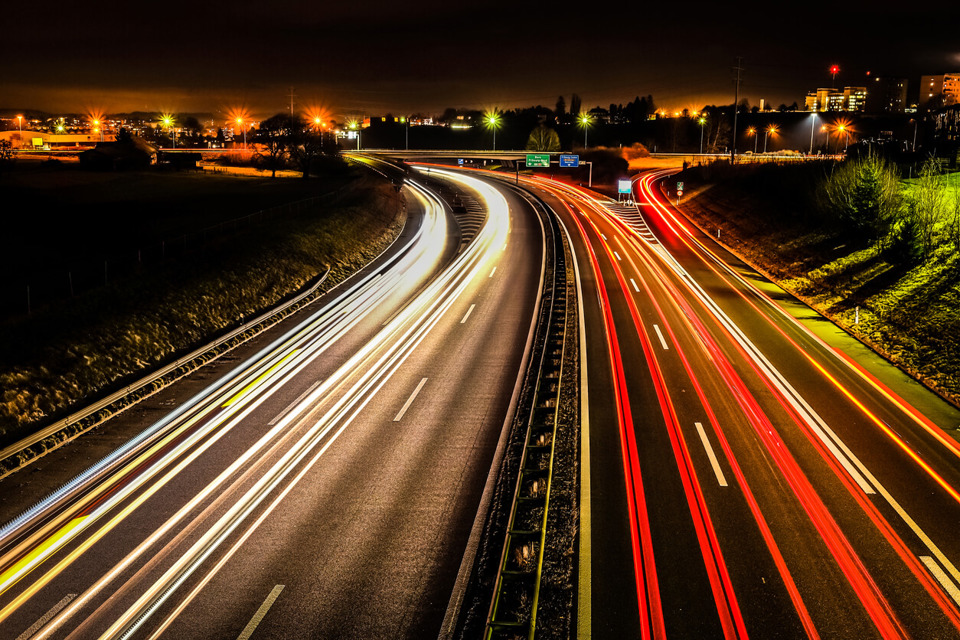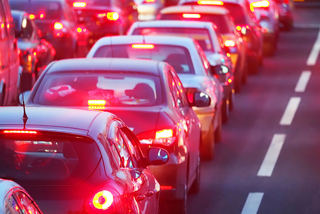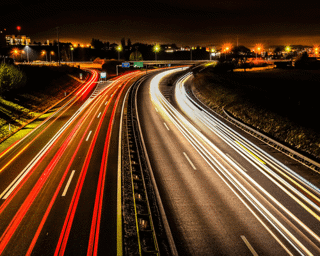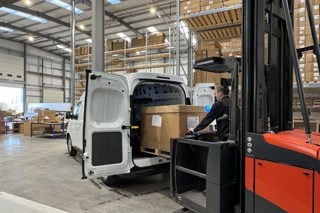A ’pay-as-you-drive’ tax should be introduced for electric vehicles (EVs) to replace lost revenues from fuel duty and VED.
That’s according to a new report, ‘The Future of Driving’, published by the think tank the Centre for Policy Studies.
It recommends that zero emission vehicles (ZEVs) should be charged a flat rate for every mile they drive, with the aim that they would still be paying significantly less than their petrol and diesel counterparts.
Everyone, the report says, would receive a set allocation of tax-free miles every year, with the allocation higher for those living in remote areas with fewer transport alternatives.
Eventually, as the share of ZEVs on the roads grows, this new per mile charging system could completely replace fuel duty and vehicle excise duty for all vehicles.
Each vehicle would be assigned a per mile rate, based on its weight to reflect wear on the roads, and charges would be collected monthly by direct debit.
"Whatever any new taxation system looks like the most important thing is that it’s simple, transparent and fair to drivers," Nicholas Lyes, RAC
The Centre for Policy Studies says that there are a variety of technological options that could be used to implement such a scheme, ranging from low-tech (submitting your mileage manually) and mid-tech (an on-board device that transmits mileage automatically) to high-tech (GPS tracking).
However, it acknowledges that any system would need to be sensitive to privacy concerns, and let people pick the option they are most comfortable with.
To reflect the public’s concerns about fairness, drivers would receive a ‘free mileage allowance’ based on their postcode.
Drivers in remote areas with limited or non-existent public transport options would receive a higher allowance than big city drivers well-served by trains and buses.
Concessions could also be granted based on disability, low income, and so on – though such measures would involve a clear trade-off with economic efficiency.
In the long run, the report suggests that the Government may wish to combine clean air, congestion and per mile charges into a single nationwide charging scheme.
In the nearer term, however, it argues that it is better to treat congestion and air quality as the local issues that they are, while letting national Government focus on implementing a simple ‘pay as you drive’ per mile charging system for ZEVs.
The report’s co-author and energy and environment researcher at the Centre for Policy Studies, Dillon Smith, said: “Our recommendations take into account public feeling on a variety of proposals, privacy concerns, and their financial impact, and deliver a solution which can lead to fairer, better, and more efficient taxation while tackling congestion and improving air quality in our big cities.”
Tom Clougherty, research director at the think and co-author, believes that the days of motorists being a cash cow for Government are numbered.
“We shouldn’t replicate the old, punitive tax system, but it is still important that all drivers pay a fair amount for the roads they use,” he added.
“The ‘pay-as-you-drive’ approach our report recommends would meet that objective and could be phased in gradually over the next decade or so – alongside targeted, local initiatives to manage congestion and reduce air pollution.”

The report, supported by the Clean Air Fund, also shows that voters remain concerned about air quality and congestion, with significant numbers believing that Government has not done enough to tackle either.
Polling by BMG Research for the think tank shows strong support for action on both, including among 2019 Conservative voters.
However, the focus groups also made clear that local policymakers need to work harder to convince voters that these are targeted measures to improve air quality and congestion rather than purely a revenue raiser.
The report recommends improved communication strategies and hypothecation as ways to achieve this.
Just as drivers would like to see money from road taxes spent on improving the roads, it says that they also back money from clean air zones (CAZs) being used to improve transport or to help people upgrade to cleaner vehicles.
RAC head of roads policy Nicholas Lyes says it is “inevitable” a new tax system will have to be developed.
“Our research suggests drivers broadly support the principle of ‘the more you drive, the more tax you should pay’, with more than a third (36%) saying a ‘pay per mile’ system would be fairer than the current regime – although three-quarters (75%) are concerned the Government might use such a system as a way of increasing the amount they are taxed.”
He concluded: “Whatever any new taxation system looks like the most important thing is that it’s simple, transparent and fair to drivers of both conventional and electric vehicles.
“It’s essential that a new system replaces rather than runs alongside existing taxation regime.
“Ministers should also give serious consideration to ringfencing a sizeable proportion of revenues raised from a new scheme for reinvestment into our road and transport network, not least to finally end the country’s plague of potholes.”























Login to comment
Comments
No comments have been made yet.